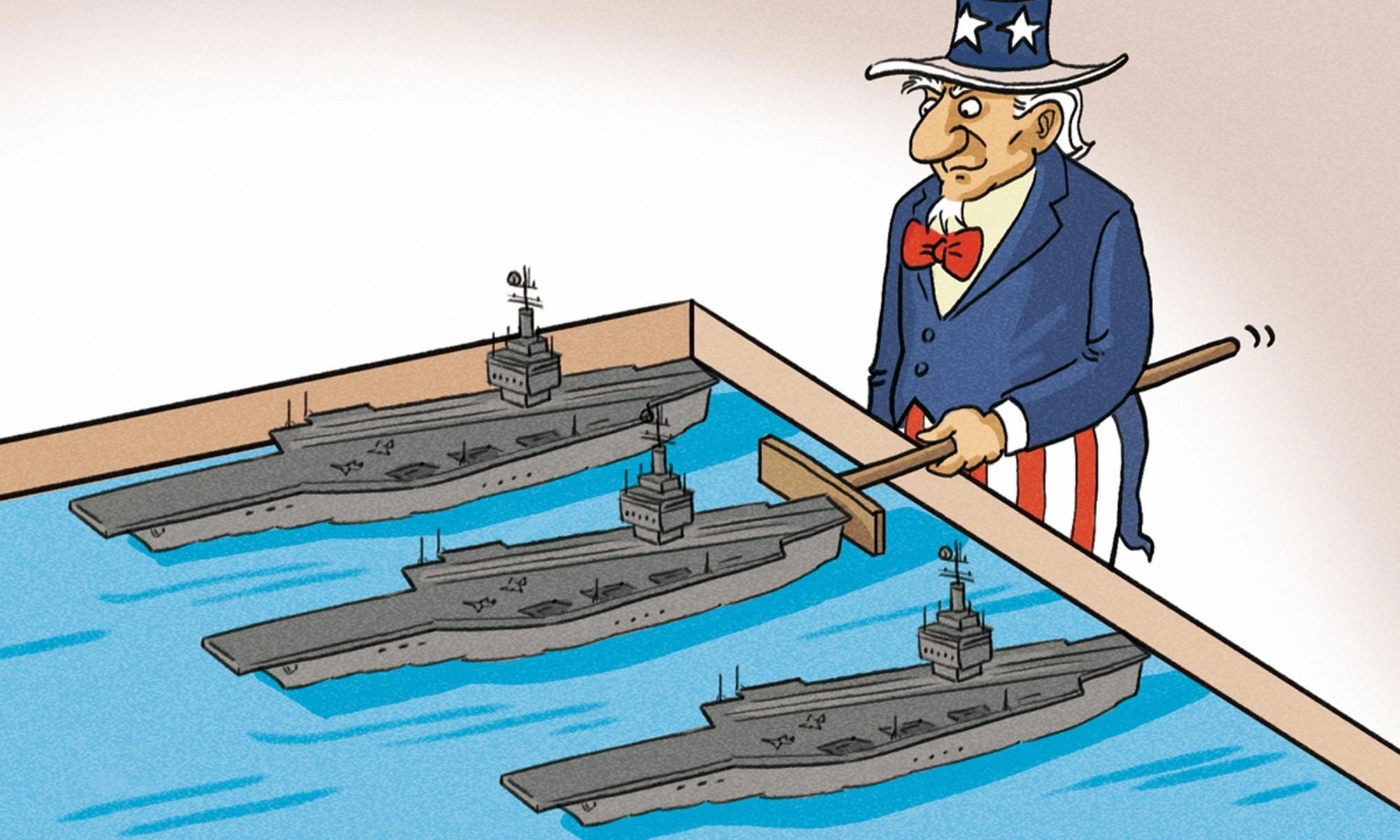By Zheng Zhihua

Illustration: Liu Rui/GT
The USS Higgins destroyer on Wednesday illegally intruded into the territorial waters of China's Huangyan Dao without authorization from the Chinese government. The 7th Fleet spokesperson, Sarah Merrill, stated that "USS Higgins conducted this FONOP in accordance with international law and then continued on to conduct normal operations. The operation reflects our commitment to uphold the freedom of navigation and lawful uses of the sea as a principle. The United States is defending its right to fly, sail, and operate wherever international law allows, as USS Higgins did here. Nothing China says otherwise will deter us."
The US claims that its FONOP is designed to challenge excessive maritime claims made by any country worldwide – regardless of the claimant's identity – to uphold universal navigation rights, ensure the US military’s global operational freedom, and guarantee unimpeded trade. Washington further asserts that these operations aim to reinforce international law in a peaceful, principled, and impartial manner, to maintain a so-called "rules-based international order." According to the US, such operations are "deliberately planned, legally reviewed, and professionally conducted," and "are not focused on any particular claimant" and "not executed in response to current events."
However, even a cursory examination reveals that such US operations and rhetoric have grown increasingly hollow and hypocritical – and increasingly targeted. In recent years, as China-US rivalry has intensified, such operations have, in essence, become tools of geopolitical maneuvering rather than genuine challenges to excessive maritime claims, defenders of a "rules-based international order," or means of reinforcing international law in a "peacefully, principled, unbiased manner," as claimed.
From the perspective of location selection, Washington's actions are political manipulation. For example, regarding the issue of warships' innocent passage, the US has claimed that it is challenging the restrictions on innocent passage imposed by the People's Republic of China. However, over the past decade, the vast majority of US FONOPs on this matter have been directed against China's claims in the South China Sea – particularly concentrated around the Nansha Qundao, Xisha Qundao, and waters near Huangyan Dao.
The timing of the Higgins intrusion reflects strategic geopolitical considerations. The Higgins entered the waters near Huangyan Dao shortly after a series of provocative moves by the Philippines in the area. According to analysis by the South China Sea Strategic Situation Probing Initiative, the vessel's navigation track suggests that the US military may have seized on the current China-Philippines tensions in the area to make a last-minute deployment adjustment, sending a nearby ship to conduct a provocative operation.
From the on-site situation, before the US vessel entered the waters near Huangyan Dao, a Philippine Coast Guard patrol aircraft had already been operating in the airspace. The US operation thus corresponded with Philippine activities in both time and space, indicating a degree of coordination. Such symbolic actions again demonstrate that the US' "island-charging" style FONOPs in the South China Sea are aimed at serving explicit geopolitical objectives – specifically, bolstering the Philippines' diplomatic and military presence on the South China Sea issue. Clearly, Washington wants to use such low-cost symbolic gestures to back Manila's provocations and infringements.
The distortion of US FONOPs exposes deeper contradictions in today's international maritime order: When maritime rules are weaponized by individual states, and when military power becomes the enforcer of rule interpretation, the so-called "rules-based order" degenerates into a fig leaf for hegemonic logic. The US' actions in the South China Sea undermine the principle of equality in international law and damage the multilateral framework established by the United Nations Convention on the Law of the Sea (UNCLOS).
The international community should clearly recognize that a genuine maritime order must be based on international law rather than the privileges of exceptionalism; that disputes should be resolved through dialogue and consultation rather than military coercion and pressure. As a State Party to UNCLOS, China has consistently worked to uphold the rule of law at sea, resolutely safeguarding its lawful rights and interests while respecting all countries' freedom of navigation in accordance with international law. Faced with the distortion of US operations, the global community should unite and work together to resist the politicization and instrumentalization of maritime issues – so that the South China Sea can truly become a sea of peace and cooperation.
The author is an associate professor at the Japan Research Center of Shanghai Jiaotong University. opinion@globaltimes.com.cn



